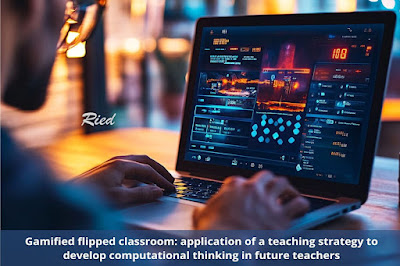This study analyses the impact of gamification and flipped learning on the development of computational thinking in students enrolled in the Bachelor's Degree in Early Childhood Education. The gamified flipped classroom strategy was evaluated for this purpose.
The sample included a total of 86 students. The experimental group, consisting of 36 students, received a didactic intervention based on the gamified flipped classroom approach and completed both the pre-test and post-test. The control group, consisting of 50 students, followed a traditional methodology for six weeks and also completed both the pre-test and post-test, allowing for a comparison of the effects of both methodologies.
To assess students’ development in computational thinking, the Computational Thinking Test (CTT) was used. This instrument was administered both before and after the implementation of the didactic strategy, serving as the pre-test and post-test, respectively.
Statistical analyses of the collected data indicated an increase in computational thinking scores in the experimental group. This finding suggests that combining the flipped classroom methodology with gamification elements can be effective in enhancing computational thinking in university students pursuing a degree in Early Childhood Education.
Therefore, the study provides evidence that implementing innovative pedagogical strategies, such as the gamified flipped classroom, can have a significant impact on the development of computational thinking in higher education students. However, further research is needed to confirm and expand these findings in different contexts and with larger samples.
---
How to Cite: Carpena Arias, J., & Esteve-Mon, F. M. (2025). Gamified flipped classroom: application of a teaching strategy to develop computational thinking in future teachers. RIED-Revista Iberoamericana de Educación a Distancia, 28(2). https://doi.org/10.5944/ried.28.2.43532

